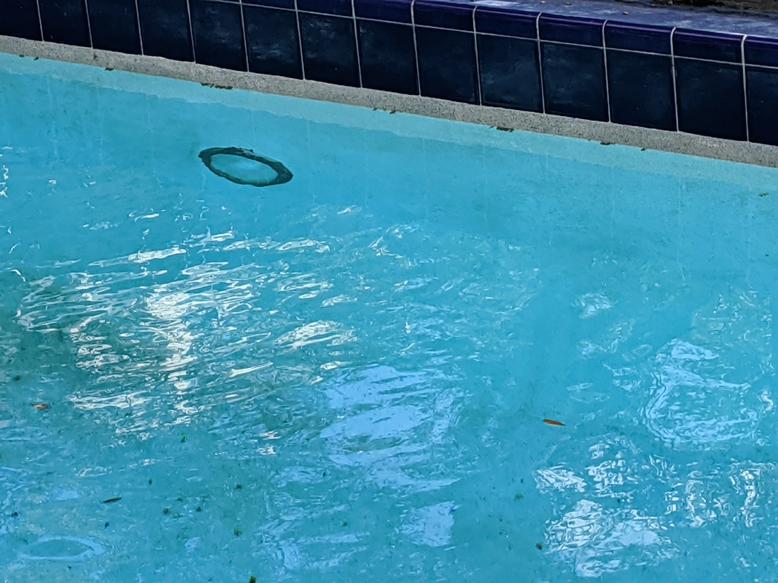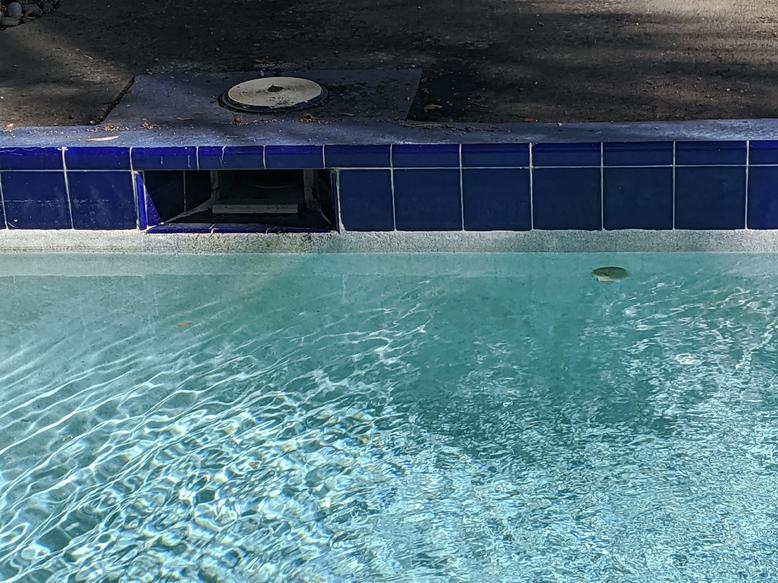 
Over 698,000 strictly plumbing related posts
Plumbing education, information, advice, help and suggestions are provided by some of the most experienced plumbers who wish to "give back" to society. Since 1996 we have been the best online (strictly) PLUMBING advice site. If you have questions about plumbing, toilets, sinks, faucets, drains, sewers, water filters, venting, water heating, showers, pumps, and other strictly PLUMBING related issues then you've come to the right place. Please refrain from asking or discussing legal questions, or pricing, or where to purchase products, or any business issues, or for contractor referrals, or any other questions or issues not specifically related to plumbing. Keep all posts positive and absolutely no advertising. Our site is completely free, without ads or pop-ups and we don't tract you. We absolutely do not sell your personal information. We are made possible by: 
|
|
Author:
sum (FL)
I am pretty sure I have a leak in my swimming pool.
I started noticing the leak about a month ago, prior to that it was fine.
The first thing I did was to make sure it's not just excessive evaporation from the hotter than usual weather. So I placed a clear bucket inside the pool at one of the steps. Then filled water into the bucket until it is the same level as the pool water outside. This way if it rains or evaporates it should still be the same level as the pool.
Normal evaporation is about 1/4" per day, and my pool is losing about 1 inch per day. So it's not evaporation.
Next I wait to see if the water loss stops or settles at a certain level, and it seems to do that.


Once it reaches about 3 inches below the bottom of the blue tiles, it stops.
That line does not correspond to any light fixture, skimmer inlet. So it's not leaking out through them.
I did a careful examination around the pool to make sure there is no crack in the pool at that level.
I then went to look at the pump and the filter and all the exposed piping, and did not see any leak there.
So at this point, the only thing left is the buried piping. How will I confirm if the leak is happening at any of the buried piping? If I fill the pool up a few inches, and turn the pump off for a few days, and shut off any valves going to and from the pump, it should stop the leak and go back to losing just 1/4" a day to evaporation right? I will try that test next.
If I then hire a leak detection company, will they be able to tell me which line (suction, outlets, spa...) is leaking? Is there some equipment they use that can pinpoint the location of leak?
|
|
Post Reply
|
|
|
Author:
bernabeu (SC)
The leak could be in/at one of the skimmer assemblies juuuuust outside of the pool wall itself.
You may be able to spot a crack by looking INTO the assembly after lowering the water level slightly BELOW the 'leak point'.
this is NOT a product recommendation, merely an example
[youtu.be]
==============================================
"Measure Twice & Cut Once" - Retired U.A. Local 1 & 638
|
|
Post Reply
|
|
|
Author:
packy (MA)
to my thinking...
if it drops three inches and stops then the leak is no deeper than that point. water seeks its own level.
|
|
Post Reply
|
|
|
Author:
sum (FL)
bernabeu if it's in the skimmer assembly itself, wouldn't the water dropping stops at the bottom of the skimmer inlet? The water continues to drop until until 2-3 inches below the skimmer bottom with the skimmer valve to the pump turned off.

Unless the operation of the pool pump with the water jets moves the pool water level up and down enough to still shift water into the skimmer even with the skimmer inlet closed off?
I checked the skimmer assembly and do not see any visible leak. I might need one of those dye syringe to really test it.
|
|
Post Reply
|
|
|
Author:
sum (FL)
Packy that's my thinking and with nothing else at that elevation that is obvious to me...I am thinking the plumbing pipes that's buried below grade. I hope I am wrong because that will not be fun with half these pipes under concrete.
|
|
Post Reply
|
|
|
Author:
bernabeu (SC)
There may be (probably IS) an 'equalizer' inlet to the skimmer piping well below the water inlet level.
You WILL need to dye test.

The purpose of said equalizer is to prevent the pump from 'running dry' should the skimmer become obstructed.
That is why there are TWO 'holes' in the bottom of the skimmer assembly.
{It is common for pools skimmers to be 'missing' the float valve assembly}
==============================================
"Measure Twice & Cut Once" - Retired U.A. Local 1 & 638
|
|
Post Reply
|
|
|
Author:
sum (FL)
OK I understand now. So it can settle lower because of the equalizer pipe connection.
If I do a dye test inside the assembly, I need to turn the pump off, the valve to the skimmer off, but do I need to plug the holes to the equalizer and pump inlets? Or leave them open?
|
|
Post Reply
|
|
|
Author:
bernabeu (SC)
Don't know.
==============================================
"Measure Twice & Cut Once" - Retired U.A. Local 1 & 638
Edited 1 times.
|
|
Post Reply
|
|
|
Author:
steve (CA)
How is a dye test going to help, unless you have all the piping exposed?
|
|
Post Reply
|
|
|
Author:
packy (MA)
yeah, no water is showing above ground to see any dye
|
|
Post Reply
|
|
|
Author:
bernabeu (SC)
how to use dye to find a pool leak:
[youtu.be]
[youtu.be]
==============================================
"Measure Twice & Cut Once" - Retired U.A. Local 1 & 638
Edited 1 times.
|
|
Post Reply
|
|
|
Author:
sum (FL)
In this case a dye test within the skimmer assembly housing is a dye in a syringe that you hold in your hand and dip into the housing, below water level and inject a little bit at a time around seams and corners hoping to see the traces of dye moves by a small suction into the crack. You do not look for presence of dye at a target location like a toilet bowl to confirm a leak, but watch the movement of the dye to find where water is being lost. If the dye enters a pipe inlet with the pump and far end valve both off then either the pipe itself has a leak or the valve isn't closing 100%.
|
|
Post Reply
|
|
|
Author:
bernabeu (SC)
ditto
==============================================
"Measure Twice & Cut Once" - Retired U.A. Local 1 & 638
|
|
Post Reply
|
|
|
Author:
Don411 (IN)
Google "pool leak detection" in your area. We had leakage in our 18x36 inground pool in NY and it turned out to be several leaks caused by carpenter ants that had eaten holes in the spa-flex piping that was used.
My problem started with a similar observation about water loss...the issues were primarily with the suction lines coming from the skimmers, when the pump was running there was negative pressure in those lines and almost no leakage. When the pump was off, the water would seep out of the holes in those lines. As the holes became larger, we started seeing lots of bubbles in the skimmer and returns as air was being drawn in through those holes,
Dye is not going to help you if the pipes are leaking below grade. A good pool co. will isolate and pressure test the skimmer and return lines, then use a leak detector to identify the location of the leak(s). In our case they replaced both the skimmer and return lines with 2" black poly pipe like you use for irrigation, apparently the ants won't eat that.
They did have to cut access squares out of the concrete around the pool to get to the skimmer connections, but I was able to patch and stain the patio to make the patches almost invisible.
Not sure the age of your pool, but we got about 15 years from ours before it needed below ground plumbing. Depending on what's causing the leak, you may want to consider a piping replacement rather than playing whack-a-mole with future leaks.
|
|
Post Reply
|
Please note:
- Inappropriate messages or blatant advertising will be deleted. We cannot be held responsible for bad or inadequate advice.
- Plbg.com has no control over external content that may be linked to from messages posted here. Please follow external links with caution.
- Plbg.com is strictly for the exchange of plumbing related advice and NOT to ask about pricing/costs, nor where to find a product (try Google), nor how to operate or promote a business, nor for ethics (law) and the like questions.
- Plbg.com is also not a place to ask radiant heating (try HeatingHelp.com), electrical or even general construction type questions. We are exclusively for plumbing questions.
Search for plumbing parts on our sponsor's site:
Special thanks to our sponsor:

|







